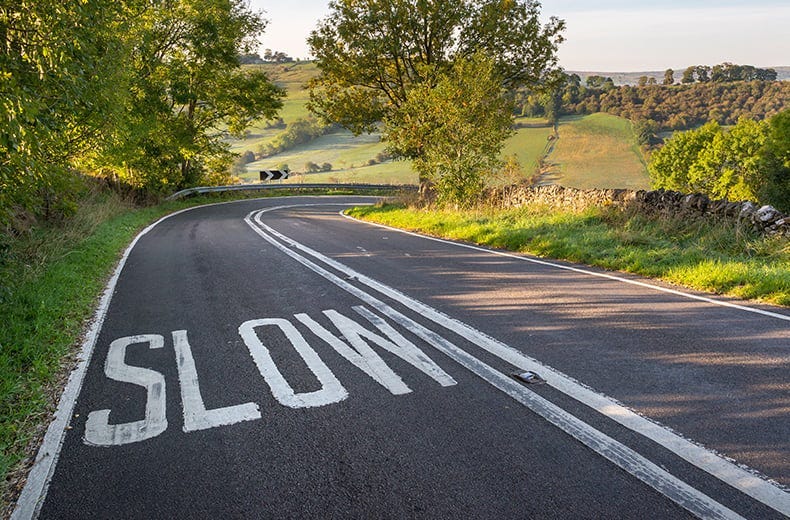💎 Friday Gems #20 (Bias in AI, Slowness, Public speaking)
Ideas to help you unleash your potential!
Hello curious people,
By now, you’ve most likely heard of the tragedy at sea with the loss of five lives in the submarine implosion by the wreckage of the Titanic. My heart goes out to the families who are dealing with the loss of their loved ones. The loss of any life is a sad moment for humanity.
That being said, as you may already know, this event has sparked a debate about how the media and our society, as an extension, have treated those who are well-off and those who have nothing. Just recently, a boat carrying 800 migrants sank off the coast of Greece, a tragic event that didn’t flood the airwaves with concern and calls for swift help.
Ricky, who writes theCouncil Estate Medianewsletter shared a post highlighting the contradictory emotions many of us feel when events like this happen.
From the article,
The double-standard with which society values human lives affects many of us on a deep level. If your message is that rich lives matter and poor lives don’t, your message is going to get the reaction we’ve been seeing. You don’t get to be angry at people for not valuing billionaire lives, if you’re not valuing refugee lives, without being called a hypocrite.
Let’s take this opportunity to change the way we as a society value one life over another because of money, status, religion, or color of skin and consider all life sacred.
Ok thanks for letting me get that off my chest, now back to our regular programming.
On to this week’s gems!
💎 Nothing About Us, Without Us
As humans, we are biased creatures. Those biases can also find their way into the artificial intelligence (AI) systems we create if we are not intentional and extremely careful. The biases can have damaging effects, especially on people from marginalized communities.
An example of the bias
"Back in 1988, the UK Commission for Racial Equality found a British medical school guilty of discrimination. The computer program it was using to determine which applicants would be invited for interviews was determined to be biased against women and those with non-European names."1
Another example from the article
"In the US, a widely used healthcare algorithm falsely concluded that Black patients were healthier than equally sick white patients."
Unfortunately, the examples of bias in AI are endless, and at the speed at which AI is moving forward, there may be many more examples that will surface and even more that may go undetected.
To help create a more equitable and accountable AI, Dr. Joy Buolamwini created the Algorithmic Justice League (AJL). This article, written by Sasha Costanza-Chock, who is the director of design and research at AJL, shares the important work their group is doing to illuminate the social implications of bias in AI.
Takeaway: As designers and technologists, we have a duty to raise awareness of the bias in AI and to learn to build better systems so we can mitigate the damage it can do.
Source: Icon Eye
💎 How Slow Can You Go?
“Things change only in relation to each other. At a fundamental level there is no time.” - Carlo Rovelli, Reality is Not What it Seems.
Time is a human construct, which means it doesn't really exist. Realizing this fact helps us break free from allowing ourselves to be defined by time.
Also, who gets to define fast as being something good and slow to be looked down upon?
From the article?
"The main reason I can find for slow having such an apparently undesirable set of meanings associated with it, is that dominant white capitalist culture that has colonised peoples, lands and languages to position our bodies solely as actors for work. It has conditioned much of the global population to labour under a clock time coupled to productivity and financial value."
In this article, the author invites us to challenge our perception of time and reclaim and celebrate the word slow.
Takeaway: It is time to break free from the negative meaning of slow and instead see the word slow as something that is nourishing, restorative, expansive, and thoughtful in our lives.
Source: Anna Starkey - Medium
💎 The Public Speaking Guide
Being a confident speaker is a superpower.
I know this because early in my UX career, I myself used to be overcome by anxiety whenever I had to present in front of my team, let alone people I didn't know. I saw how my reluctance to stand up in front of strangers and speak hurt me as a designer because I just wasn't comfortable, and I also didn't have any strategies in place to deal with the anxiety that I experienced. After practicing the strategies and putting myself out there, I was able to overcome my resistance to public speaking.
You, too, can break free from anxiety and become a confident speaker by practicing and learning ways to deal with the fight-or-flight feeling that comes with public speaking.
In this article, Sahil Bloom shares strategies he uses as he presents keynotes and talks to crowds of all sizes. Sahil groups the strategies into the key moments when giving a talk, such as the prep stage, pre-talk stage, and delivery stages, because each of the stages presents its own unique challenges.
Takeaway: Public speaking is a superpower to help you share your ideas with the world. Build up your speaking muscles through consistent preparation and practice. Use strategies to help you overcome any obstacles you face along the way to become a great speaker.
Source: Sahil Bloom
Let me know in the comments if any of the gems resonate with you. I always love hearing from you.
Thanks for reading, and have a fantastic weekend!
Rizwan
https://www.ncbi.nlm.nih.gov/pmc/articles/PMC2545288/?page=1








